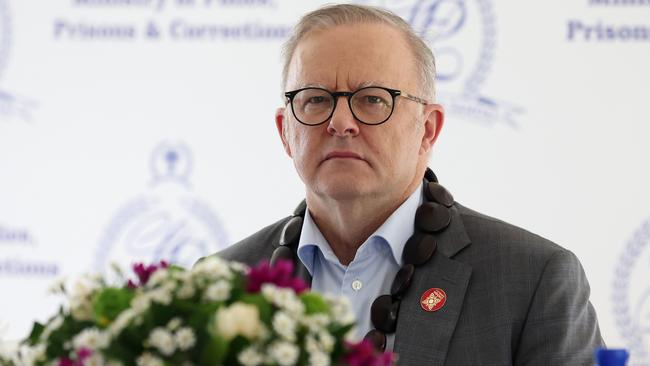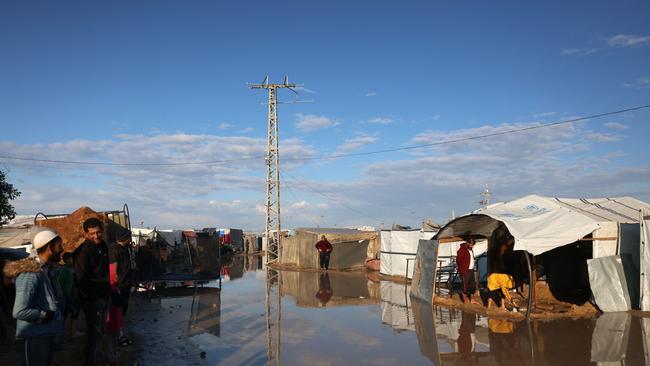As tensions rise, climate change is a defence issue


Many are still in denial of the fact that the world of today and tomorrow looks nothing like the world of the past 60 years. Take, for example, global politics. It’s no longer fit to view the geopolitical environment as “the West versus the rest”, but some still do.
China is not a simple substitute for the Soviet Union; its approach to geopolitics is a long game being built on strategic economic and diplomatic plays, and by crafting new global infrastructure, institutions, and alliances.
India has, effectively, abandoned the Nehru doctrine and pursued economic liberalism, which is now clashing with religiosity and identity politics, but is crafting a new outward posture that transcends the traditional east-west dichotomy. And the rise of strongman politics and nationalism in democratic states is making strange economic and political bedfellows.
Meanwhile, economically, a tectonic shift in the locus of economic growth and trade is under way. Growth and trade have shifted from the West – from Europe and the US – to the Indo-Pacific region, while globalisation is giving way to fragmentation and the creation of alliances that are seeking access to critical pools of resources.
All this amounts to tensions rising across the globe – the world is a tinderbox. These geopolitical tensions are stoked further by the challenges and implications of climate change, which could be the proverbial match that sets the entire thing ablaze.
If you are a defence hawk – one who, rightly, subscribes to a perceived rising threat to our nation and thus advocates for a rise in defence expenditure and strategy – you must also be a champion of meaningful action on climate change. That’s because the conjoining of climate and security issues will only accelerate with devastating humanitarian results of poverty, undernourishment, and a growing class of stateless people. Changing weather patterns are affecting crop yields, and access to water looms as a major spark for global conflict.
Already some 700 million people are undernourished, and a wave of climate refugees will pose severe challenges for nation states and our global institutions in trying to find peaceful and humanitarian solutions. It will also, sadly, feed narrow and damaging nationalistic political tensions.

For Australia, the literal existential threat of rising sea levels to strategically located Pacific Island nations is already a source of geopolitical manoeuvres – all with overt diplomatic and security implications.
Defence experts often point to the rising risk of conflict – a rise in the continuum from cold war status to militarisation, to the red alert of actual conflict – as justification for increasing defence spending as a form of insurance.
And yet, for all the billions expended, and the missteps and defence budget blowouts that are well known, the calls for more spending continue unabated – such is its perceived importance.
Why is it then that the incredibly real risks around climate change, such as starvation and death, lost productivity and economic growth, rising ill-health, and the security implications of an increase in stateless people fail to receive the same attention as defence spending? Defence hawks need to consider national security questions with these factors in mind. Perhaps then there would be a realisation that both defence and climate change issues are navigated by increasing the resilience of our supply chains.
This isn’t some abstract debate. One climactic weather event or conflict outbreak in one part of the world could send the price of key commodities soaring or threaten our access to vital inputs such as fuel. That’s why building resilient supply chains – the common risk across security and climate change domains – should be the bipartisan project of the coming year. For instance, the Future Made in Australia Fund should primarily be in the service of supporting the supply chains in defence and renewable energy.
Building this resilience in supply chains, through innovation and market-based incentives, is the new industrial policy we need to meet the emerging new world. Defence preparedness and action on climate change are born of similar perspectives of risks and outcomes, and embody the emerging triangulation of economic growth, security and technology – a new lens through which to view public policy.
The great bipartisan project of the coming decade, and indeed sooner, is just this. To ignore this puts at peril Australia’s future and consigns debate to the whims of narrow populism and short-term thinking.
Pradeep Philip is head of Deloitte Access Economics.




As we enter a new year, with a federal election looming just around the corner, there’s never been a better time to pause and really take stock of the challenges that confront Australia.